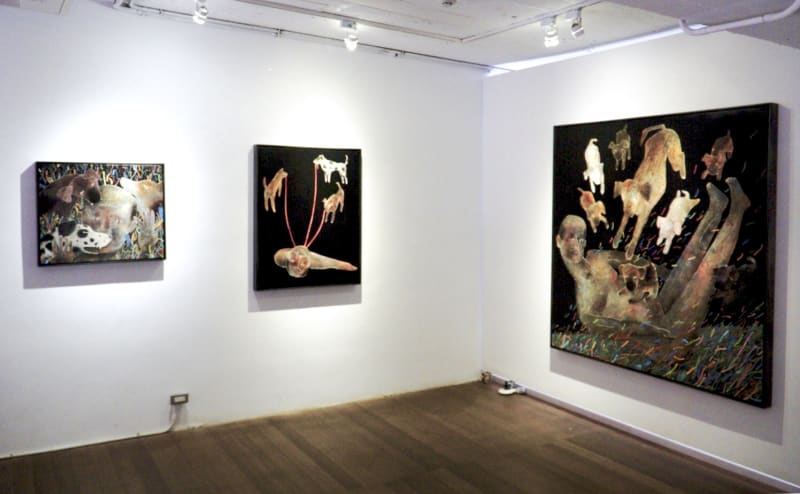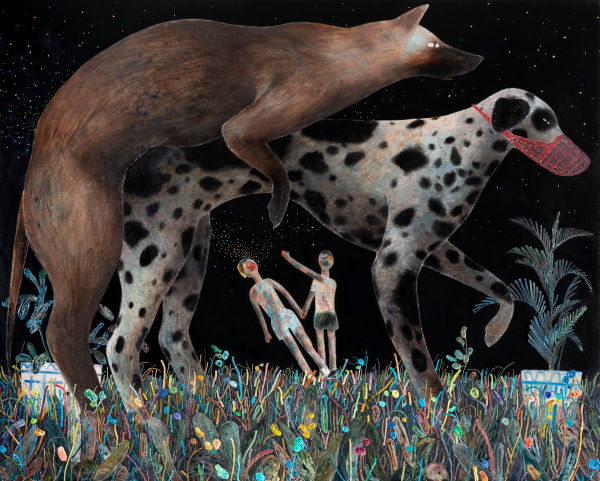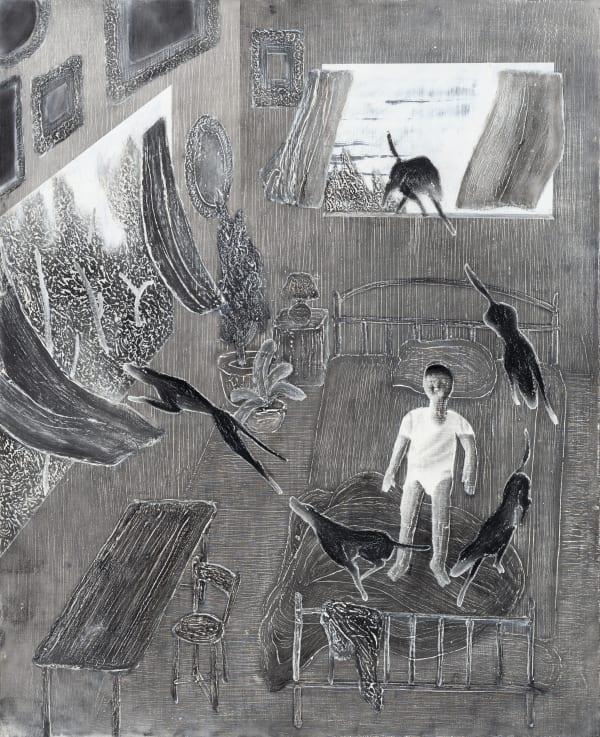Lai Wei-Yu:My Beloved Wouldn't Save Me!
Lai Wei-Yu's solo exhibition, Headcanon Salon d'Automne 2016, held two years ago at YIRI ARTS Taipei Space, showcased his insights, recognitions, and experiences in the art world, highlighting its amusing and absurd aspects. The exhibition offered a glimpse into Lai Wei-Yu's unique perspectives and reflections on art.
In the fall of 2018, Lai Wei-Yu presented another solo exhibition, titled "My Beloved Wouldn't Save Me!" at YIRI ARTS Pier-2 Space, where he once again delved into the subjects that he holds dear. Using his signature style and techniques, which he had honed in his solo shows since 2012, he presented innovative drawings after introspection and contemplation.
Lai Wei-Yu's paintings employ humorous techniques to convey complex and intense emotions such as panic, anger, loneliness, sadness, and revelry. He blends these emotions into a single object, creating a bewildering and perplexing effect. He explores various themes and techniques to express these anxieties, ranging from individual anxiety to group anxiety in activities, academic institutions, and family settings, with the latter being a frequent subject of his paintings.
For Lai Wei-Yu, painting is a form of self-administered therapy and healing. By "killing on the canvases," he confronts and copes with the trauma he has experienced from society and interpersonal relationships. He expresses his frustration and opposition by demolishing the individuals or objects from his past, rigid authorities, systems, and ideologies.
This process enables him to revisit his past traumas, reevaluate his perception of society, identify the root causes of his inner turmoil, heal his younger self, and enhance his self-awareness. With time and creative endeavors, Lai Wei-Yu has reconstructed his worldview through numerous paintings. He uses his rebellion to comprehend the absurdity, resignation, and helplessness of various aspects of the world and strives to reset and respond accordingly.
The passage discusses the artwork of Lai Wei-Yu in his solo exhibition, "My Beloved Wouldn't Save Me!" The artist focuses on individuals and their emotional states, such as panic, anger, loneliness, sadness, and revelry, to express what he believes to be the "real pictures" underneath these feelings. Lai Wei-Yu believes that human beings can never be really sure of their current state, and thinking about unanswerable questions leads to feelings of nullity and anxiety. He believes that using emotions such as happiness, sorrow, and fear to explain these states means little, and he is interested in images of what people are really like when they strip off public explanations and take off the coat of civilization.
The exhibition also includes dogs, and Lai Wei-Yu paints interactions between dogs and people. He is not particularly interested in describing what dogs are, possibly because he doesn't really know or doesn't want to know. All the dogs in his paintings may just be the dog that he has adopted: Master Yoda, while all the people in his paintings are somehow reflections of himself. Lai Wei-Yu points out that he has never known and will probably never know what Master Yoda is thinking, not even when he eats a rice cake. This is just like how we can never really know what others are thinking. Lai Wei-Yu emphasizes that there are no differences between humans and animals and that he loves Yoda because it is real.





